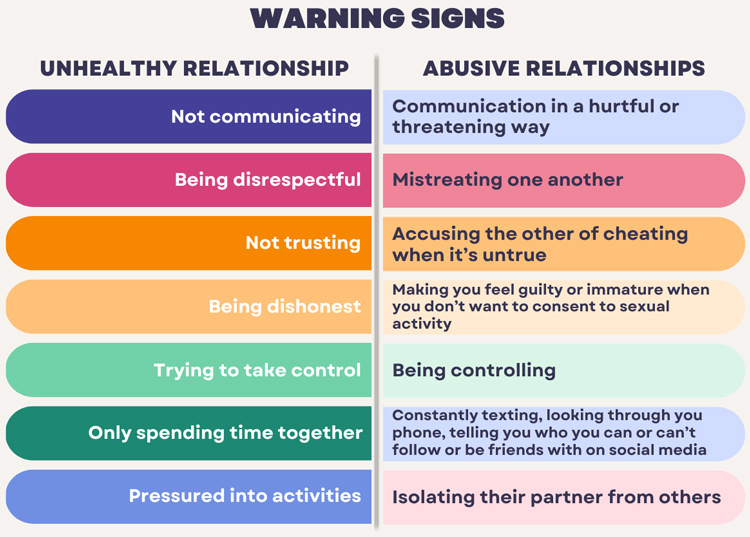By TAMI WANNINGER
Guest Columnist
 Every February during Teen Dating Violence Awareness Month (TDVAM), Prevail spotlights the real harm young people experience in unhealthy and abusive relationships.
Every February during Teen Dating Violence Awareness Month (TDVAM), Prevail spotlights the real harm young people experience in unhealthy and abusive relationships.
We invite you to “Go Orange” with us to help us spread education about teen dating violence and promote the healthy and fun relationships young people deserve.
Dating violence is more common than you think, especially among teens and young adults.
- One in three teens experience abusive dating relationships by the time they leave high school.
- One in five kids aged 11 to 14 say their friends are victims of teen dating violence.
- Approximately 81 percent of parents did not know teen dating violence is an issue.
- Fifty-eight percent of parents state they are not able to identify warning signs.
Sadly, of teens in abusive relationships, only 32 percent have confided in their parents about their relationship.
As a caring adult in a youth’s life, having conversations about healthy relationships is a significant protective factor against abusive relationships.
Here are some things you can do:
- Talk early and often.
- Help your child identify ways to practice self-love.
- Discuss safe ways to express love in a relationship.
- Talk about the key elements of a healthy relationship like respect, equality, trust, honesty, communication, and consent.
- Model examples of honest communication, conflict resolutions, safety, and resect.
- Look for opportunities to talk to your child in a no-pressure, private space with no distractions.
- Listen without judgment or accusations and be open to their ideas.
- Help your child recognize the warning signs of an unhealthy or abusive relationship.
It can be tricky for young people to understand that relationships exist on a continuum from healthy to abusive, with unhealthy relationships somewhere in the middle. Unhealthy relationship behaviors and dating abuse can be hard to spot.
See some warning signs for unhealthy and abusive behaviors in teen dating relationships in the graphic below.

Graphic provided
If you worry that a young person is experiencing dating violence, one of the first steps you can take is responding to what you are observing. Youth want connection and support, but it is important to not jump to conclusions. We suggest you approach the conversation from a supportive and non-judgmental place by listening, approaching them with curiosity, and asking open-ended and strategic questions. For example, “I noticed you haven’t been hanging out with your friends much lately. I have missed seeing them. Is everything okay?”
If they do report unhealthy or abuse behaviors, be supportive, validate their feelings, and believe them. It can be helpful to focus on the behaviors, not person or persons involved. You will want to talk about their safety in a non-judgmental, supportive way and decide on next steps together. Prevail is also a free and confidential resource for you and your teen.
It is important we discuss teen dating violence by providing the opportunity for young people to have open conversations with the adults in their life. As a community we must do better for our teens!
Go orange for Prevail on Feb. 8, 2024, to help us raise awareness for Teen Dating Violence.
Tami R. Wanninger, MPA serves as the Executive Director for Prevail, Inc. Learn more about Prevail by visiting prevailinc.org.

